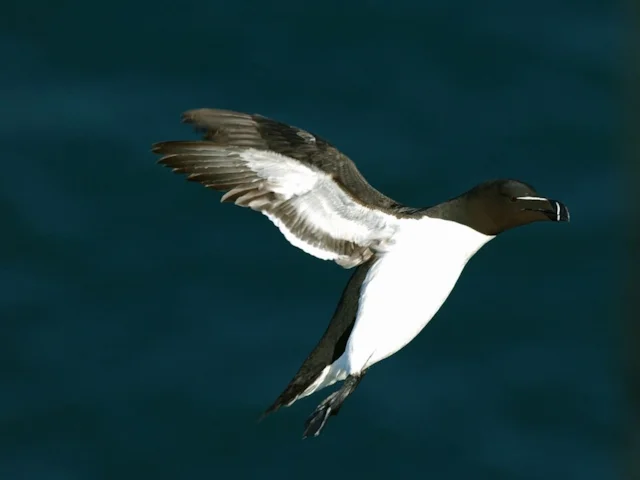Anger over Scottish offshore windfarms
97a89e40-cc79-4f18-bfaa-ec01bace5cbc

RSPB Scotland has expressed major concerns about the granting of consent for four offshore windfarms in the Firth of Forth by Scottish Ministers today.
The windfarm develpments could be among the most deadly anywhere in the world for seabirds, and threaten Scotland’s internationally important marine wildlife – in particular large colonies of Northern Gannet, Kittiwake, Puffin and Razorbill that breed along the coast and forage for food in the surrounding seas.
The Firth of Forth supports fantastic seabird populations of European and global importance, such as the impressive 110,000 strong Bass Rock gannet colony off the coast of North Berwick, and the Kittiwakes and Puffins which breed on the Isle of May and in the Fowlsheugh Special Protection Area, which is also an RSPB reserve. A drop in numbers of these already declining species at these sites seems inevitable.
Nowhere in Europe have offshore wind schemes been proposed in such close proximity to seabird colonies of this size, and there is therefore great uncertainty over the predicted impacts of collisions of seabirds with turbines and displacement from important foraging grounds at sea. The latest estimates suggest that well over a thousand gannets and hundreds of Kittiwakes could be killed each year during the summer months alone, and many hundreds of Puffin could die as a result of losing important feeding areas. Countless other birds also pass through the area on migration, and these developments will undoubtedly impact them, too.
Stuart Housden, Director of RSPB Scotland, said: “The Scottish Government has done a good job of steering onshore windfarms away from the most damaging places for birds, so having repeatedly raised our concerns about these offshore windfarms it is extremely disappointing that they have decided to approve developments which put so many thousands of Scotland’s seabirds at risk.
"If the models and assessments of potential damage prove accurate, these windfarms would be among the most deadly for birds anywhere in the world. RSPB Scotland wants to see the development of the offshore wind industry in Scotland but it must not be at such massive cost to our internationally important seabirds. We will be considering carefully what further steps we can take in the coming days to ensure these decisions are fully compliant with the requirements of EU conservation directives.”
The windfarm develpments could be among the most deadly anywhere in the world for seabirds, and threaten Scotland’s internationally important marine wildlife – in particular large colonies of Northern Gannet, Kittiwake, Puffin and Razorbill that breed along the coast and forage for food in the surrounding seas.
The Firth of Forth supports fantastic seabird populations of European and global importance, such as the impressive 110,000 strong Bass Rock gannet colony off the coast of North Berwick, and the Kittiwakes and Puffins which breed on the Isle of May and in the Fowlsheugh Special Protection Area, which is also an RSPB reserve. A drop in numbers of these already declining species at these sites seems inevitable.
Nowhere in Europe have offshore wind schemes been proposed in such close proximity to seabird colonies of this size, and there is therefore great uncertainty over the predicted impacts of collisions of seabirds with turbines and displacement from important foraging grounds at sea. The latest estimates suggest that well over a thousand gannets and hundreds of Kittiwakes could be killed each year during the summer months alone, and many hundreds of Puffin could die as a result of losing important feeding areas. Countless other birds also pass through the area on migration, and these developments will undoubtedly impact them, too.
Stuart Housden, Director of RSPB Scotland, said: “The Scottish Government has done a good job of steering onshore windfarms away from the most damaging places for birds, so having repeatedly raised our concerns about these offshore windfarms it is extremely disappointing that they have decided to approve developments which put so many thousands of Scotland’s seabirds at risk.
"If the models and assessments of potential damage prove accurate, these windfarms would be among the most deadly for birds anywhere in the world. RSPB Scotland wants to see the development of the offshore wind industry in Scotland but it must not be at such massive cost to our internationally important seabirds. We will be considering carefully what further steps we can take in the coming days to ensure these decisions are fully compliant with the requirements of EU conservation directives.”

